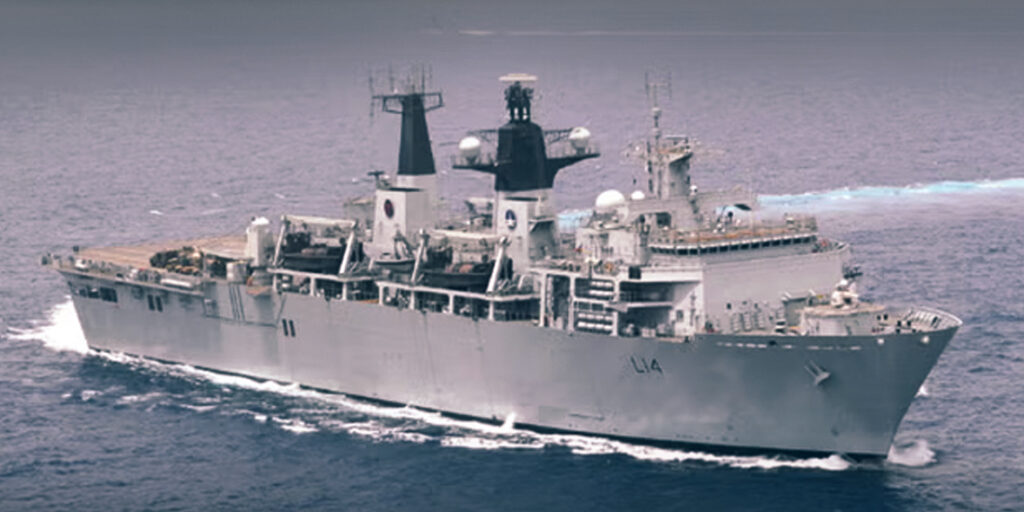The UK Defence Secretary, John Healey, has announced sweeping cost-saving measures that will see key Royal Navy vessels, helicopters, and drones decommissioned as part of efforts to address what he described as the “dire inheritance” left by the previous Conservative government.
Two former Royal Navy flagships, HMS Albion and HMS Bulwark, will be retired, along with the ageing HMS Northumberland, a Type 23 frigate deemed beyond economic repair.
Two Wave-class tankers will also be scrapped. Additionally, the Army’s Watchkeeper drones, which have faced persistent operational issues since their introduction a decade ago, will be grounded.
The helicopter fleet will not be spared, with the 14 oldest Chinook transport aircraft to be withdrawn early and the Puma helicopters phased out by March 2025.
The decision, aimed at cutting costs, has sparked concerns about the UK’s future operational capabilities.
The announcement has drawn sharp criticism from opposition figures and military experts alike.
Sir Julian Lewis, former chairman of the Intelligence and Security Committee, described the move as “a black day for the Royal Marines,” particularly the scrapping of the amphibious ships.
Tanmanjeet Singh Dhesi, Chairman of the Defence Select Committee, acknowledged the need to transition to modern equipment but raised concerns about the lack of a fully disclosed strategic defence review.
He questioned whether retired equipment would be sold to allies or sent to Ukraine. In response, Mr Healey stated that decisions on the fate of decommissioned assets remain pending but promised to keep Parliament informed.
Matthew Savill, Military Sciences Director at the Royal United Services Institute, noted that many of the assets being retired were nearing the end of their operational lives or no longer cost-effective to maintain. However, he cautioned that the cuts highlight severe resource constraints within the Ministry of Defence.
Savill underscored the need for the Defence Review to address critical issues, including the future role of the Royal Marines and the Navy’s ability to sustain a modern escort fleet.
Mr Healey defended the measures, stating they were overdue decisions avoided by previous administrations.
He added that the cuts would help manage the Ministry of Defence’s budget and allow better implementation of the upcoming Strategic Defence Review.
As the UK faces an increasingly complex international security environment, these cost-cutting measures are likely to spark further debate about their long-term impact on national defence and military readiness.


